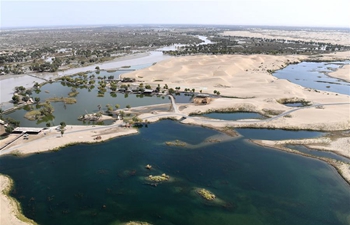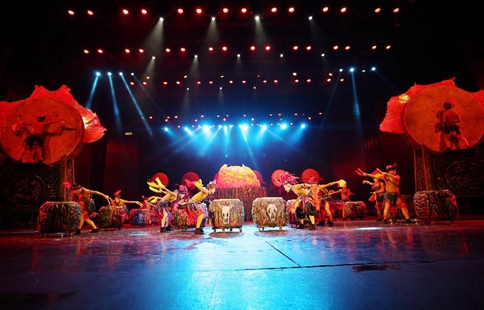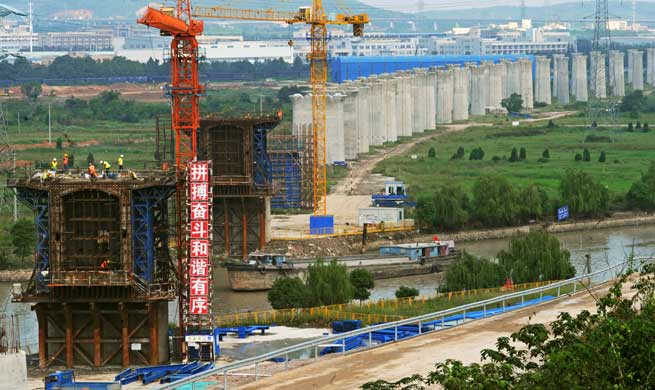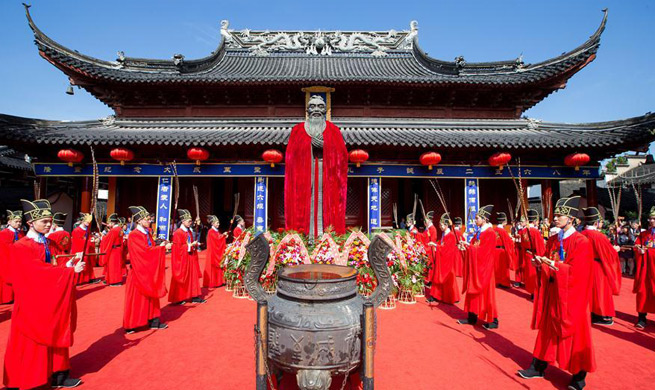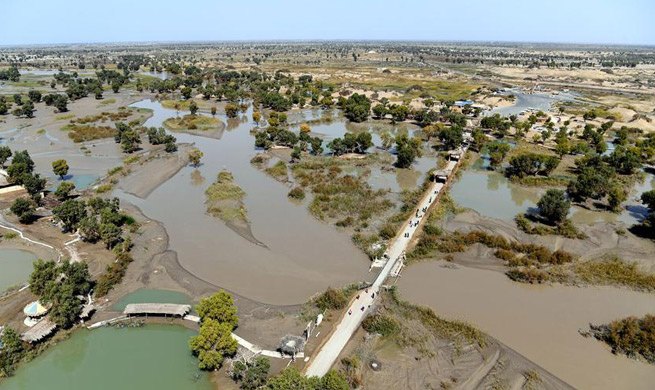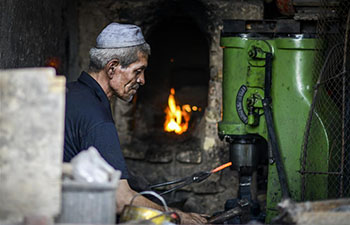ZHENGZHOU, Sept. 28 (Xinhua) -- Chinese archaeologists will leave for Kenya on Sunday, on a 2-month expedition to trace the origins of modern humans.
East Africa is universally acknowledged as the cradle of humanity and has been a hotspot for the study of human evolution since the 1950s.
The team will work with the National Museum of Kenya to excavate an area in Rift Valley Province, 300 kilometers from Nairobi, working on an area of 200 square meters on a site discovered in 2016, said Li Zhanyang, team leader and researcher with Henan provincial institute of cultural heritage and archaeology.
They will also investigate an area of 20 square kilometers for the remains of ancient humankind near the Baringo and Bogoria lakes.
China's archaeologists have the right to name any human fossils or other items they discover. In the preliminary investigations conducted in April and May, 40 stone tools believed to be from the Paleolithic Sangoan Culture (200,000-300,000 years ago) were collected.
Establishing whether the Sangoan Culture had any relation to the origin of modern Chinese humans is one of the objectives of the excavation, said Li, who discovered human cranial fossils in 2007 and 2014 in Xuchang City, Henan Province.
Comparative study of Chinese and African prehistoric humans is essential as the Xuchang Human (more than 100,000 years old) shares characteristics with early modern humans in north China, said Li.
Xuchang Human was likely a hybrid of the indigenous population and Europeans, according to Li's research published in "Science" magazine in March.







